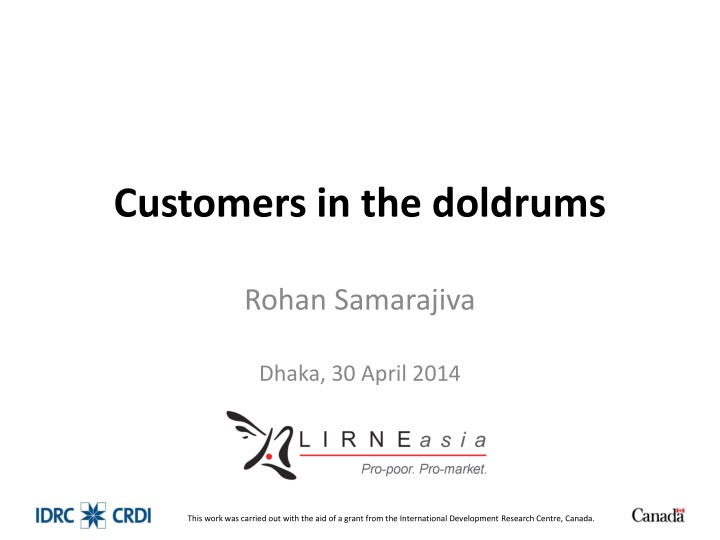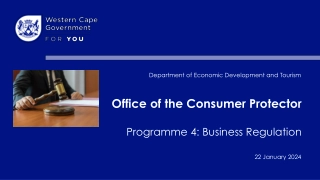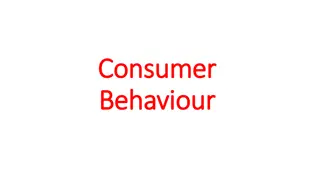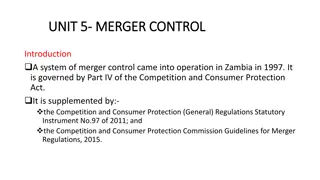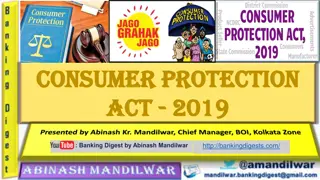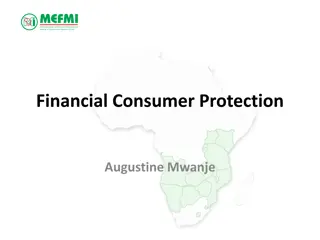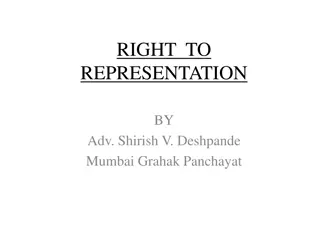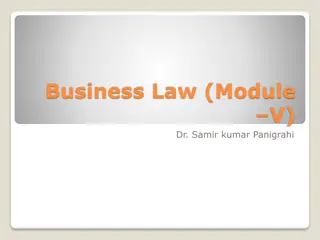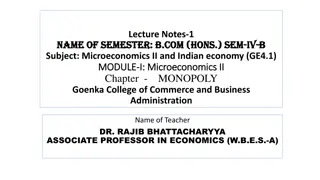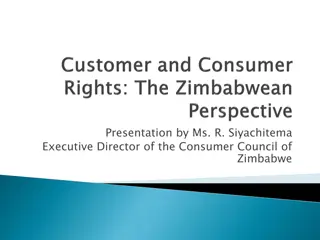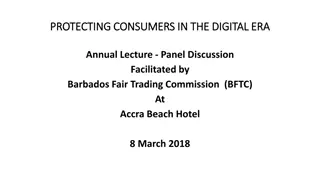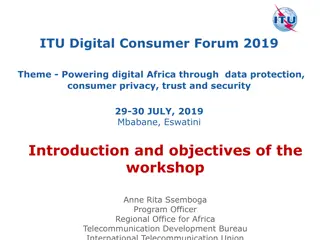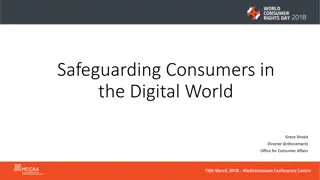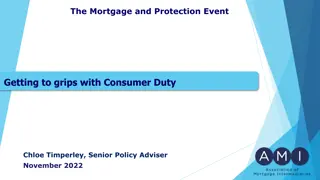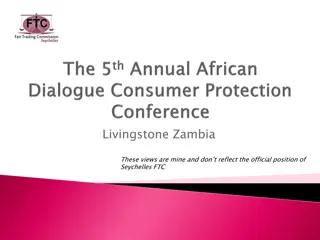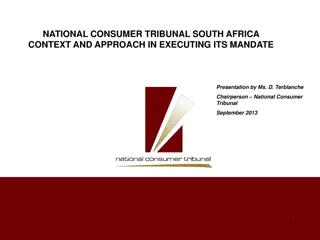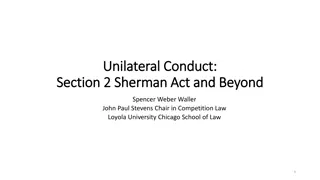Challenges and Solutions in Consumer Protection within Monopoly Environments
Consumer protection in the context of monopoly environments presents unique challenges and requires specific actions. Professor Stephen Littlechild highlights the importance of competition as the most effective means of protecting consumers. In situations where there is a single supplier, such as in electricity services, government intervention is crucial to safeguard consumer rights. The balance between regulation and promoting competition is key to ensuring fair treatment for consumers. Instances like load-shedding riots underscore the critical need for effective consumer protection mechanisms even in competitive markets.
Download Presentation

Please find below an Image/Link to download the presentation.
The content on the website is provided AS IS for your information and personal use only. It may not be sold, licensed, or shared on other websites without obtaining consent from the author.If you encounter any issues during the download, it is possible that the publisher has removed the file from their server.
You are allowed to download the files provided on this website for personal or commercial use, subject to the condition that they are used lawfully. All files are the property of their respective owners.
The content on the website is provided AS IS for your information and personal use only. It may not be sold, licensed, or shared on other websites without obtaining consent from the author.
E N D
Presentation Transcript
Customers in the doldrums Rohan Samarajiva Dhaka, 30 April 2014 This work was carried out with the aid of a grant from the International Development Research Centre, Canada.
Professor Stephen Littlechild on consumer protection Competition is indisputably the most effective - perhaps the only effective means of protecting consumers against monopoly power. Regulation is essentially the means of preventing the worst excesses of monopoly; it is not a substitute for competition. It is a means of holding the fort until competition comes. 1983 Report to UK Government, Para 4.11 2
Best economist not have received a Nobel: Albert Hirschman, 1915-2012 Economics privileges exit; Politics voice But increasingly cross- overs occur Very useful framework for thinking about quality of service in electricity and telecom 3
Consumer protection in context of a single supplier (e.g., electricity) In a monopoly environment, government has major responsibilities with regard to consumer protection When there are no exit options (alternative suppliers), voice is only option (other than doing without) Voice can be direct: consumer speaks/complains to supplier Voice can be directed to 3rd party (consumer protection agency/utility regulator) who has power over supplier In extreme cases, voice can lead to anti-supplier anti- government agitation
Load-shedding riots in Punjab, Pakistan 5
Consumer protection under competition Caveat emptor (Let the buyer beware) is the starting position Assumes homogenous products and costless exit options Assumes perfect knowledge of competing products Obviously unrealistic; For all markets, but especially for markets in infrastructure services Government actions in absence of assumptions Reduce information asymmetries Regulate suppliers proportionate to deviation from competitive market (e.g., differential treatment of fixed v mobile telephony) 6
A low-quality equilibrium even in presence of multiple suppliers? Customers unhappy with quality in Supplier 1 move to S2; S2 s disaffected move to S3; and so on; but S1 gets an equal number of unhappy customers from Sn In India 89.7 million MNP requests (around 1/10th of total number of active SIMs) were received over 28 months, indicating significant level of unhappiness No supplier receives the feedback postulated by theory Does this change with business analytics that allow operators to see who is leaving and joining? Or do they see, and do nothing?
Does exit mute voice? Does the possibility of satisfaction through exit, weaken incentives to give voice? Is it thus necessary for both suppliers and regulators to seek to reduce transaction costs of complaining, using ICTs?
When voice is valued, does exit decline? In service industries, perfection is never possible If voice is valued Customers may not exit Also, customer complaints can be a valuable resource for improving service 9
